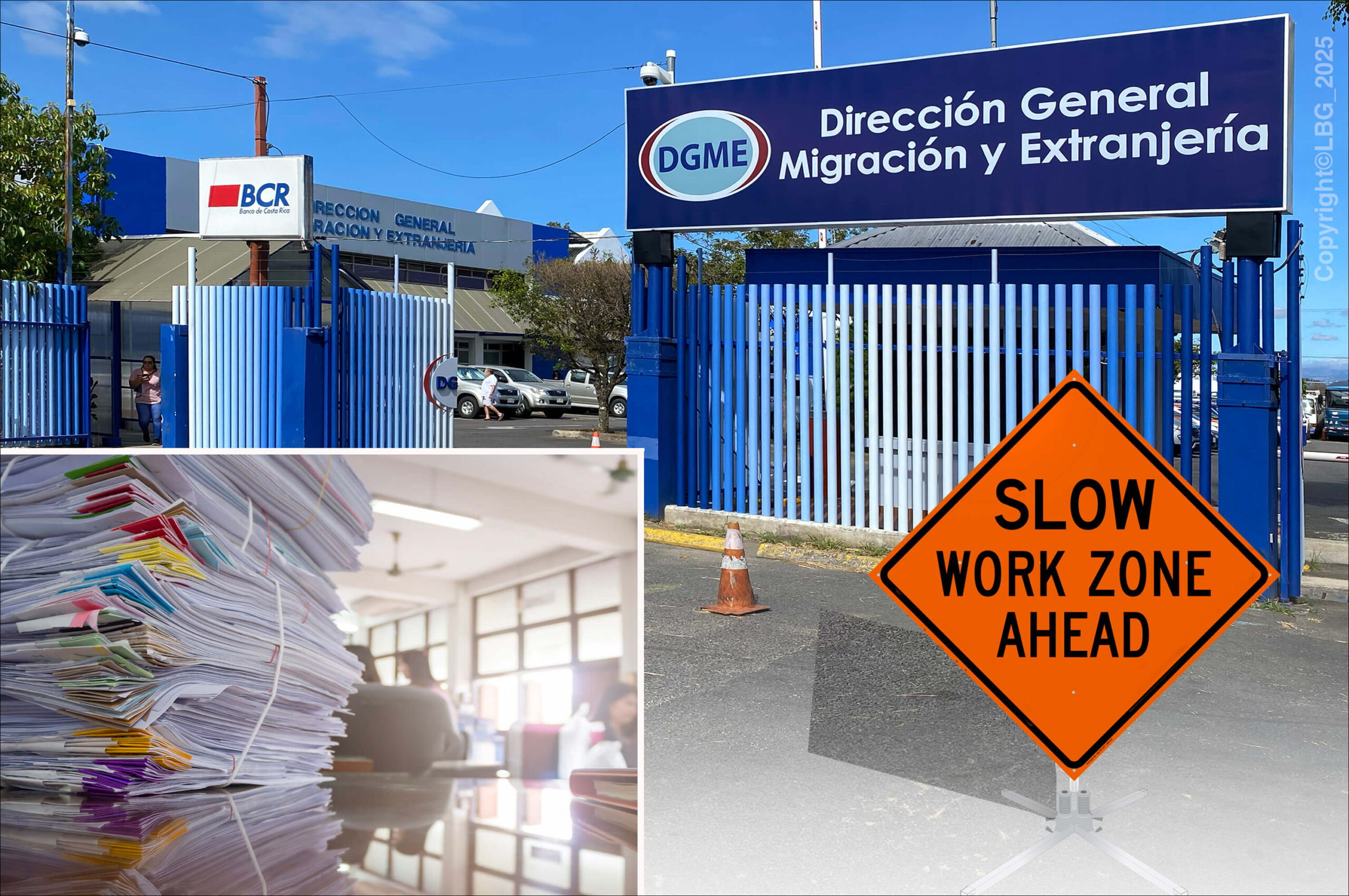
For Expat Residents & Tourists
Read time: 2.5 minutes.
1) Travel Requirements:
Unless you are a citizen or legal resident of Costa Rica, you must show an outbound /return ticket upon entry. This includes individuals who have applied for residency and are awaiting approval.
- A valid UNDAMAGED passport or travel document. Passports and travel documents will only be accepted if they can be read electronically in accordance with the guidelines established by the International Civil Aviation Organization (ICAO) and are valid for the period set forth in those guidelines. You should renew your passport at least 6 months before its expiration date. Doing so at your local consulate in San José, Costa Rica, is often faster than doing so from your home country. Just know that it is possible.
- Visa, if required under these guidelines. (Not generally required for U.S., Canadian, and E.U. citizens.)
- Proof of economic means, with a minimum of US$100.00 (one hundred US dollars) per month or partial month of legal stay in the country. (Very few people are ever asked to show such proof. But be ready.)
- Return ticket to the country of origin or a plan of onward travel that includes the next destination, such as an inexpensive bus ticket to neighboring Panama or Nicaragua, easily purchased online. Otherwise, an outbound airline ticket with 180 days of your entry to Costa Rica.. (IE, Show us that you have booked your exit with 180 days.) This rule also applies to those awaiting approval on submitted applications for legal Costa Rica residency of any type. FYI: This policy applies to all countries around the globe for any non-legal resident. Nothing unique to Costa Rica.
- No impediment to entering Costa Rican territory.
For more details:
https://www.visitcostarica.com/planning-your-trip/entry-requirements
2) Crime:
While crime is often sensationalized in the media, it’s no different than anywhere else in the world where the use of common sense keeps you safe. IE, ALWAYS stay aware of your surroundings, and you’ll have a fantastic time in this beautiful country. You’ll likely return home with a smile and rave about your visit to family, friends, and co-workers. In 2024, tourism was up 7% over 2023—an affirmation of Costa Rica’s safety.
3) Driving in Costa Rica:
Driving here is different but manageable, especially for those used to navigating big cities. Be extra cautious, stay defensive, and never assume anything. 95% of Tico drivers are on their phones—particularly at traffic lights. Tailgating is common, and stopping entirely at stop signs or red lights is rarely observed. Avoid road rage, park sensibly, and be mindful of what you leave in an unattended vehicle.
For more details:
/driving-in-costa-rica/
4) Visa vs. Legal Residency: Not the Same.
Entry Visa: A stamp you get in your passport upon entering Costa Rica, typically allowing a 180-day stay for citizens of countries such as the U.S., Canada, the EU, and Australia. Don’t overstay your visa, as it could delay future entries.
Legal Residency: (MOST COMMONLY CONFUSED AS A VISA) is for those who plan to stay in Costa Rica for more than 180 days a year. It has to be applied for. Once approved, you’ll receive a DIMEX card (not a cedula) as proof of residency.
Citizenship:
Costa Rican citizenship is proven through a Cédula. A.K.A. Citizenship card. Expats can apply for Costa Rica citizenship once they have met certain specific qualifications.
5) Importation of household goods and vehicles:
Many expats overpack when moving to Costa Rica. Trim down your belongings and avoid unnecessary baggage. You can import vehicles tax-free, but the process involves a lot of red tape. It’s often simpler to buy a car here rather than deal with the hassle of importation.
For more details:
/tax-free-vehicle-importation/
6) Healthcare:
Tourists: It’s advisable to get health insurance from major, well-known providers. Healthcare providers may not widely accept lesser-known brands. Not anything to scrimp on.
Legal Residents: If you’re approved for legal residency, you must enroll in Costa Rica’s national healthcare system (CAJA). If you’re not a resident, private health insurance is a must.
Private hospitals in this area offer top-notch care but can be expensive.
Public medical centers provide excellent treatment but may have limited facilities and much slower service.
For more details:
/caja-monthly-premium-calculations/
7) Banking:
Costa Rica’s banking system is secure and offers services similar to those in developed countries. However, expect longer wait times and cash limits at ATMs. Bring plenty of cash as a tourist since many banks don’t accept foreign credit cards for bill payments. Some of the best banks are BAC, Scotia, Davivienda, and LaFise, while Banco Nacional (BN) is often considered the most frustrating to deal with. Currency of choice is local Costa Rica Colones (CRC), and USD.
8) Considering a Move to Costa Rica? (and Where to Settle):
Understandably, emotions may be running high after the recent Canadian and U.S. elections, but please take a moment to calm yourself. Moving to Costa Rica should never be an impulsive decision made out of frustration with your home country. There’s a lot to consider, so start by taking at least a two-week trip around the country. Travel is safe, enjoyable, and offers a wide variety of experiences. Whether by tour bus or rental car, take a chance to get a feel for the country before making any major decisions. Don’t decide to move here without first having your flip-flops on the ground.
For more details:
/how-to-choose-where-to-live-in-costa-rica/
9) Renewing your DIMEX (residency) card:
It can be applied for 90 days before the expiration date.
Highly advisable to do it by then.
Have you already gone past the expiry date? Don’t panic just yet.
For more FREE details:
/dimex-renewal/
10) Sending Mail, Documents, or Packages from Your Home Country
Avoid using government or private postal services.
These services often struggle with coordinating effectively with local affiliates, leading to lost or returned items and unnecessary frustration.
Instead, rely exclusively on UPS, FedEx, or DHL. (Pay the extra cost. Well worth it.)
Always triple-check the recipient’s information for accuracy.


